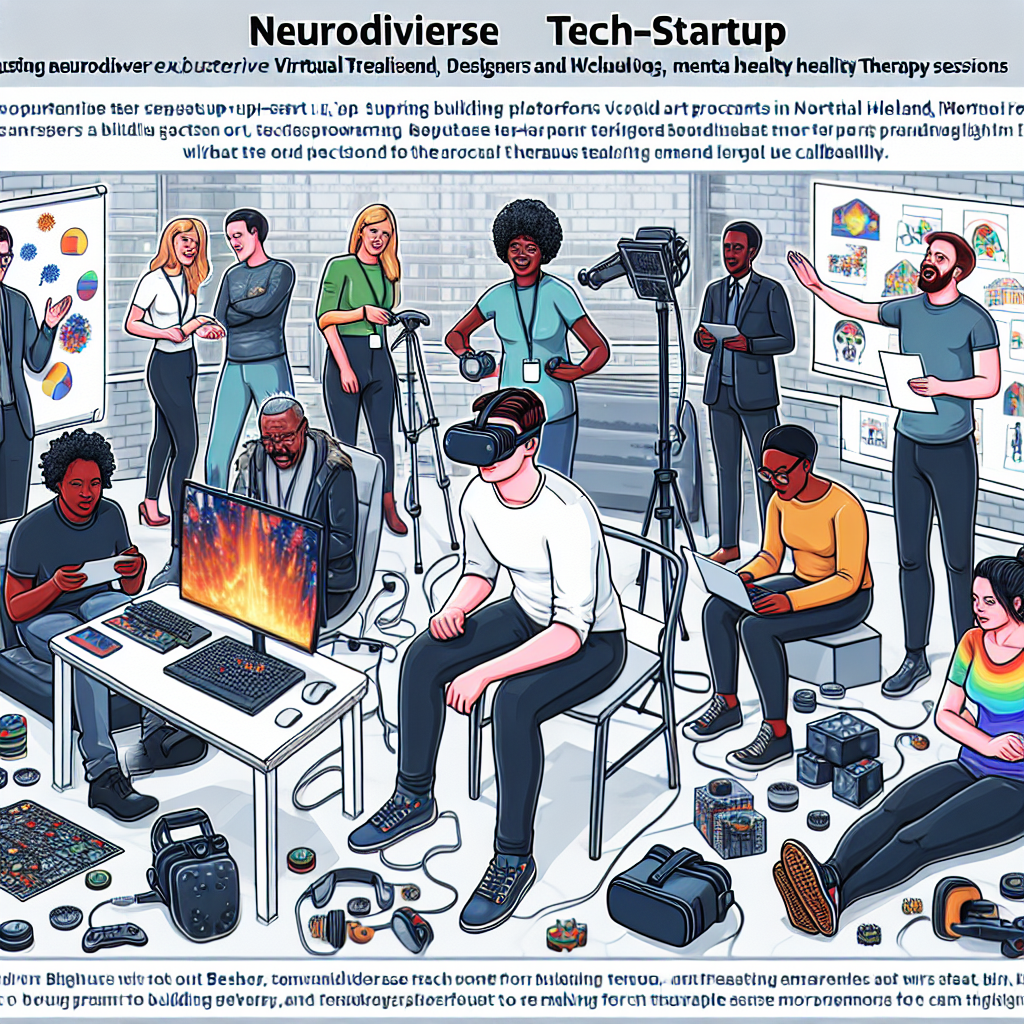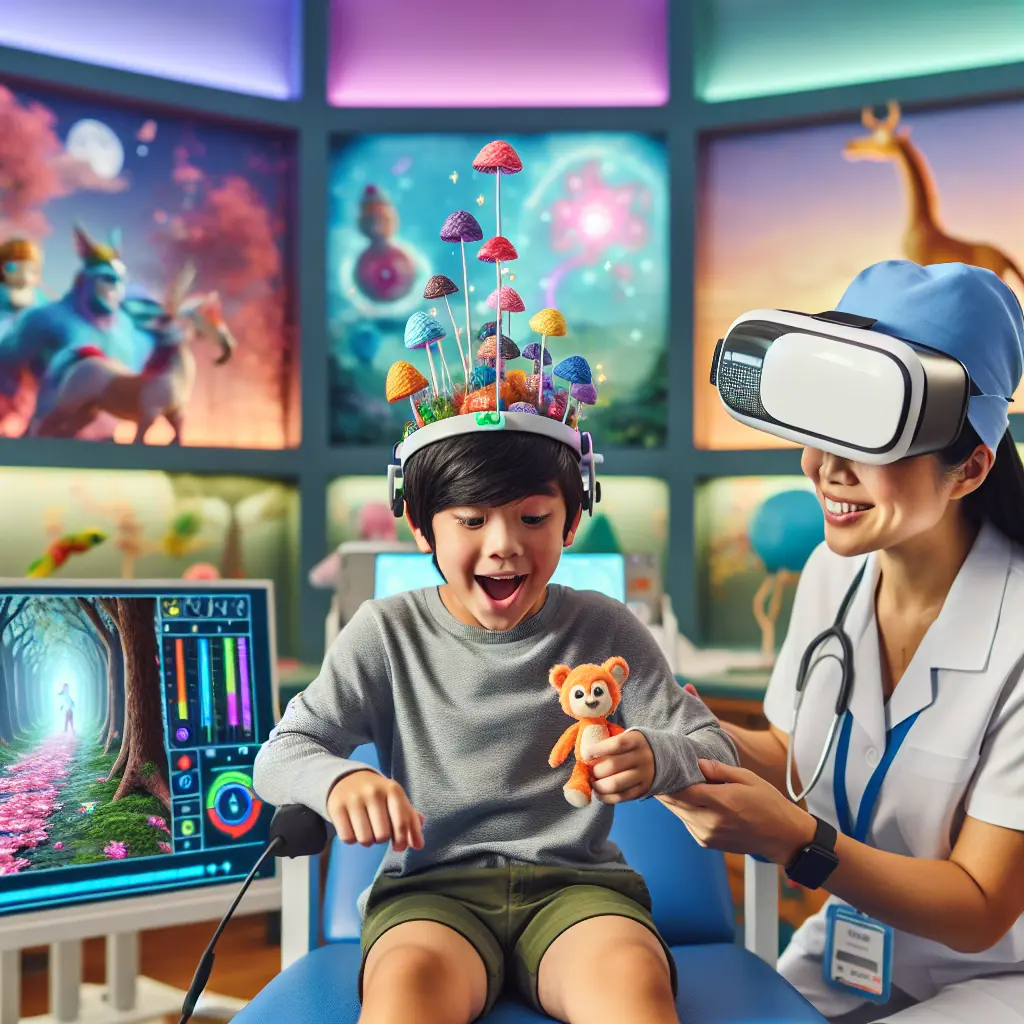Virtual reality is reshaping the future of mental health treatment by making therapy more immersive, accessible, and human than ever before. Millions around the world suffer from phobias—intense, irrational fears of objects or situations—that can disrupt daily life and wellbeing. Traditional exposure therapy, often considered the gold standard for treating phobias, requires individuals to confront their fears in controlled real-world scenarios. However, this approach isn’t always accessible, affordable, or even feasible for everyone. Enter virtual reality therapy: a groundbreaking innovation that brings clinically effective treatment into the digital age.
With new VR technology, people struggling with phobias can now access guided, immersive therapy from the comfort of their own homes. This leap forward is transforming both the accessibility and effectiveness of mental health care.
Rephobia: Harnessing VR to Tackle Phobias
A promising example of this innovation is Rephobia, a Belfast-based startup founded with the vision to "make fear less scary, therapy more human and support more accessible." Built on a foundation of lived experience and technical expertise, Rephobia is the brainchild of Liam Harte—a computer science student who understands firsthand the challenges of anxiety and obsessive compulsive disorder (OCD).
The company’s approach centers on a therapist-led VR platform that enables safe, guided exposure therapy. By leveraging immersive technology, Rephobia replicates real-life fear scenarios—like public speaking or encountering spiders—within a secure and controlled virtual environment.
How Virtual Reality Therapy Works
Rephobia’s therapeutic model is both innovative and evidence-based. Utilizing VR headsets, users are placed in environments that simulate their specific phobias. Grounded in cognitive behavioural therapy (CBT) principles, particularly graded exposure, users gradually face their fears in manageable steps. Unlike self-guided VR apps, Rephobia sessions are facilitated by qualified therapists who can monitor progress and adjust scenarios in real time. The system measures physiological responses and tracks user progress, ensuring that each step is tailored to the individual’s comfort and needs. Scenarios can be paused, repeated, or adjusted in difficulty, keeping the user in control throughout the therapeutic process.
Expanding Access to Mental Health Care Through VR
One of Rephobia’s core missions is to serve those who are currently underserved by traditional mental health services—especially tech-savvy young adults aged 18 to 35. Many individuals face barriers such as cost, availability of therapists, or reluctance to confront their fears outside of a controlled setting. By offering an affordable and scalable solution through widely available VR headsets, Rephobia is helping to break down these barriers and make effective therapy available to more people.
The team at Rephobia has recently expanded to include clinical expertise in psychology and CBT research, ensuring that all content is ethical and grounded in science. Their roadmap includes expanding their library of phobia environments with customizable intensity levels, developing data-driven insights and adaptive environments tailored to individual progress, and forming partnerships with health systems, universities, and insurers to broaden accessibility.
The Future of Virtual Reality Therapy
Rephobia’s ambition doesn’t stop at phobias. The startup plans to expand into broader anxiety disorders over time, illustrating the vast potential of VR therapy in mental health care. As technology continues to advance, these tools will only become more immersive and responsive to individual needs.
Virtual reality therapy represents a crucial evolution in mental health care by providing a safe space for gradual exposure, increasing access for those unable to attend traditional therapy, lowering costs through technology, and making therapy feel less clinical and more empowering. These benefits pave the way for more empathetic and effective treatment experiences for those struggling with mental health challenges.
Why VR Therapy Is a Game-Changer for Phobias
Platforms like Rephobia highlight how digital solutions can bring about meaningful change—helping people face their fears with confidence and dignity. With advancements in customization and real-time therapist support, VR therapy is poised to become a staple of modern mental health care. To learn more about how startups are leveraging VR to transform mental health, read the full article here.
Facing Fears With Confidence
Facing our fears can be daunting—but with tools like virtual reality therapy, each step forward becomes a little less scary and a lot more empowering. VR is not only making therapy more accessible but also beautifully immersive for users at every stage of their journey.
As the line between technology and empathetic care grows thinner, innovations like Rephobia are helping people across the world take charge of their mental wellbeing—one immersive experience at a time.
Stay curious—and remember, every journey through fear is a journey toward strength.









Leave a Comment